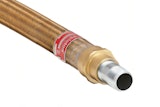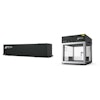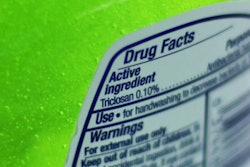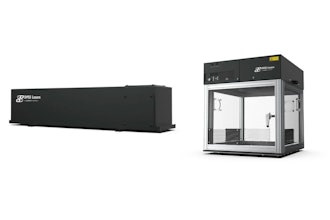OEMs, even those with in-house machining capabilities, often need to offload specific metal parts to a precision machine shop. This can be because the parts are complex or difficult, the volume of parts is small, the duration of the production run is short, or existing machines are already being used to produce other parts.
However, despite the availability of machine shops on every other corner, OEMs still can receive parts that are not precisely to specifications. When this occurs, the ramifications can range from lost time and cost re-working parts to burdensome documentation requirements when parts are off-spec, for industries such as automotive, aerospace and defense.
“We've had issues with quality from machine shops before, no question about it,” explains Pete Freely, quality assurance manager for Medico Industries’ manufacturing division. “In machining you can find vendors that will cut corners. If a part is off by a half thousandths of an inch, they might say ‘don't worry about it, ship it,’ and you won’t know about it until later — if at all.”
Since 1967, Medico Industries has produced over 20 million metal parts for U.S. Government Defense Programs and over 7.6 million commercial parts for the automotive and oil and natural gas drilling industries.
Despite having a full range of equipment for metalworking – from forging and heat treating to machining and finishing — Medico Industries still sends parts out when its machines are running at full capacity, the job is short term, or production volumes are sporadic and uncertain.
“There are times when it makes sense to say, 'let’s get someone else to do it',” says Freely.
When this is required, Freely says it is important to achieve a level of comfort that the company they outsource to will deliver consistent quality parts every time. This is critical because ultimately the OEM is responsible for any parts they put out — even those outsourced.
As a result, OEMs must be able to identify and partner with a machined parts supplier that can deliver quality, consistently. “We don't always go with the cheapest supplier,” says Freely. “You can take that into consideration, but you go more for best value.”
For many years, Medico has outsourced parts to Belrick Corp, a precision manufacturer of components and assemblies from Swoyersville, Penn. This includes threaded metal parts, machined forgings, and several others machined from bar stock.
Belrick uses advanced horizontal and vertical machining centers to perform CNC turning and milling, robotic welding, fabrication, prototype, inspection and assembly. The company has extensive machining experience with bar stock, sheet, castings, forgings, plate, special shapes and fabrications.
“They are very competitive [in price] — which is obviously important — but their track record for meeting the schedule and the quality of their work in the years we've been dealing with them has been really good. Any issues have been very, very minor. They are very conscientious,” says Freely.
This quality is reflected in the type of equipment and advanced CMM measurement systems it utilizes. It is also reflected in the machine shop’s ability to handle more complex or difficult jobs, such as machining castings and forgings.
Freely adds that when dealing with the automotive, aerospace or defense industries, when there is a problem with a part it can involve much more than just replacing or reworking the items.
“When there is a problem, for certain industries you have to go through an exercise to prove what happened and demonstrate why it won’t happen again,” says Freely. “When you bring a third party supplier into it, it makes it even more difficult to troubleshoot and convince your customer that you've found the root cause.”
“When you get good quality products consistently, you don't have to deal with any of that,” adds Freely. “To find a vendor where you really can sleep at night and not have to worry about that stuff, it goes a long way.”
Even with its confidence in Belrick, when parts are received in, Medico performs regular quality assurance checks to ensure the parts are to specifications.
“We can't go back to our customer and say, ‘well, it wasn't our fault, our sub did it,’” says Freely. “It’s ultimately our responsibility.”
OEMs also often require parts quickly and so require a machine shop that can be flexible and responsive when necessary. Many shops are hesitant to stop production and make changes, yet customers both large and small often show up with unexpected demands.
When this occurs, smaller, more nimble operations can often help OEMs immediately.
Such was the case for Landon Monte, inventor of the ZeroDay Survival Kit. The small, lightweight, minimalist survival kit was first featured on Kickstarter, where it recently surpassed its fundraising goal.
Each survival kit has 10 components, each with varying complexity and machining needs. This required an intimate knowledge of not only machining process, but also a solid understanding of how each part interacts.
“I went out on a search for a machine shop I could trust,” says Monte, who estimates there are six machine shops within a 25-mile radius. “Most of them seemed too busy to care about a smaller individual.”
Impressed with Belrick’s responsiveness, as well as its status as a Veteran-owned business given his own military background, Monte admits he went to them with a bunch of paper with what he characterizes as “the scribblings of a madman.”
“It was very chaotic — all dreams and aspirations,” explains Monte. “They looked the drawings over and said it looked good and they could do the work, but there were a couple things they recommended altering for efficiency and to reduce costs that wouldn’t affect the product.”
Over the course of production, Belrick kept in continual communication. That included informing Monte of each machining step in the process. “They even found time to allow me in to take pictures of the kits being machined so I could capture the behind-the-scenes process for my Kickstarter backers,” says Monte.
The initial production run was for 120 ZeroDay Survival Kits (100 aluminum models and 20 titanium variants). The second production run was for 150 Aluminum models and those were delivered ahead of schedule.
Monte says the results have far exceeded his expectations.
This includes satisfying his concern about meeting the tight tolerances of one specific component of the kit, a “fire piston” at the core of the precision machined body that relies on compression to transfer kinetic energy into thermal energy.
“The fire piston has to have a remarkably tight tolerance [+/- .001 "] in order to be used to best effect,” explains Monte. “Belrick not only assured me it would meet the demanding tolerances but went above and beyond by contacting outside anodizing shops to ensure the protective layer added was accounted for in the final dimensions.”
Monte is now working with the company for some new add-on accessories for the ZeroDay Survival Kit, as well as other products he wants to bring to market.
“Their attention to even the most seemingly minute detail produced machined parts that I proudly attach my name to,” says Monte. “They realized every aspect of what I imagined my product to be.”























